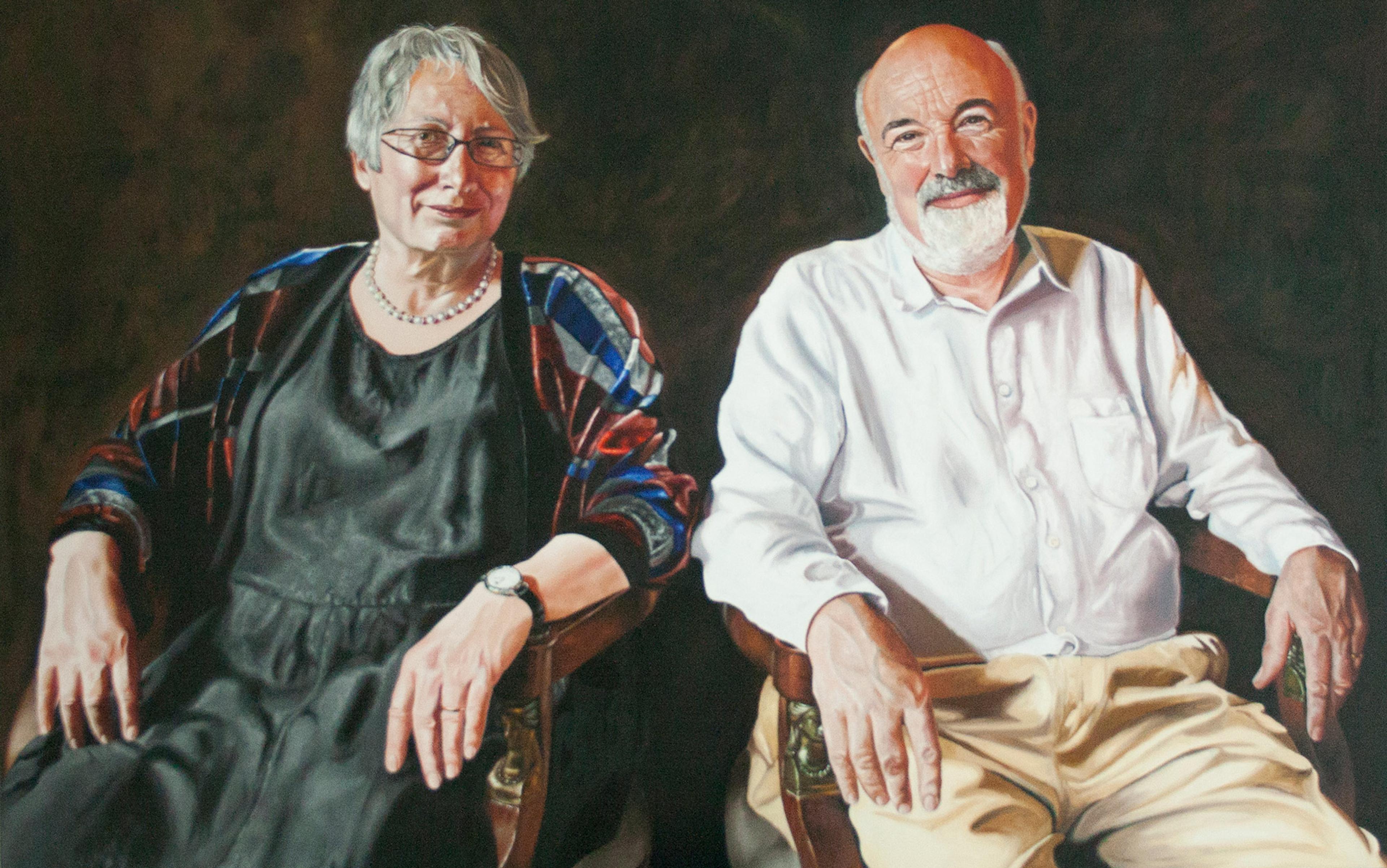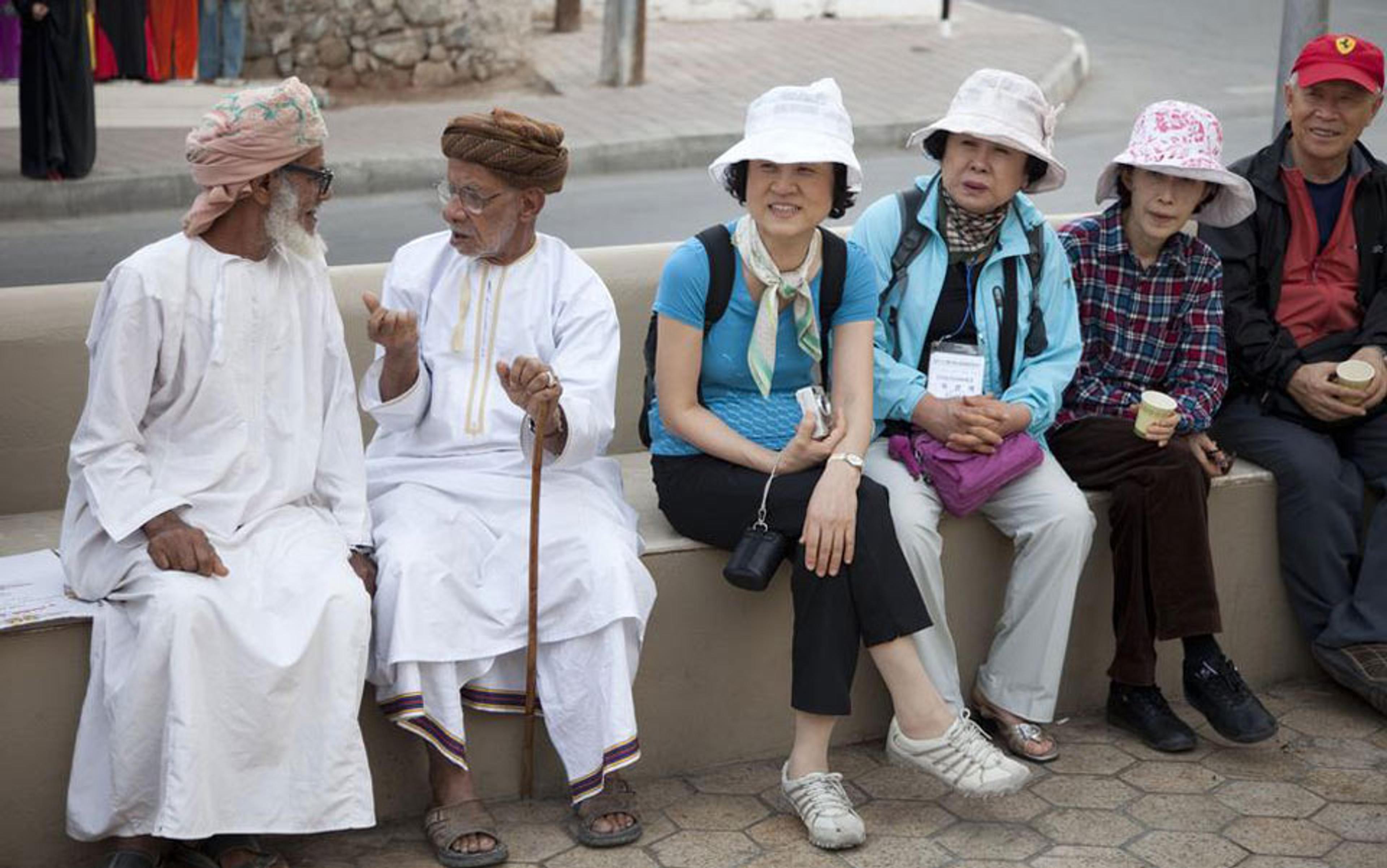Our neighbours recently celebrated their diamond wedding anniversary. Sixty years of marriage – how do you manage that? Albert and Lillian claim to have the perfect recipe. In his after-dinner speech, Albert explained: ‘When we got married, we agreed that minor, everyday decisions would be taken by Lillian, while major, important decisions would be taken by me.’ Albert then added: ‘So far, there has been no need for any major decision.’
Life is one long string of decisionmaking, even if none of them is major. This is certainly the impression we get from reading cognitive neuroscience journals. A great many studies these days seem to involve ‘decisionmaking under uncertainty’ (otherwise known as gambling). As a married couple, we have now clocked up just over 50 years of decisionmaking together. We still frequently avoid or delay decisions, but we know that this does not pay off in the long run. And, when we do make decisions, we usually make them jointly.
In case this sounds too good to be true, we hasten to add that it’s not always easy and often involves arguments – despite, or perhaps because, we are both cognitive neuroscientists ourselves. Actually, argument turns out to be a well-kept secret in group decisionmaking. But before we turn to the value of acrimony, let’s look at some of the reasons why we believe that people can make better decisions together than they can on their own.
In the right circumstances, two heads are indeed better than one. Chris has even published an experiment demonstrating that pairs of people working together can make better decisions than the better member of the pair working alone. Here, Chris and his colleagues asked two volunteers to try to detect when a very weak visual signal occurred. If they disagreed, they discussed what they had seen, and agreed on the answer. The joint answers were significantly better than those given by the best people working on their own. The study revealed that this was because they talked to each other about how confident they were in what they’d just seen.
Amazing? Yes, and the result has been replicated. But why should this be?
One reason is that our senses are unreliable. Often, we have to make decisions on the basis of what we’ve just heard or seen. But these sensations can be noisy. How can we be sure of what it was we just heard or saw? Think of radar operators who have to hunt for weak signals and decide if this is an incoming missile or a flock of birds. The wrong decision could start World War Three.
These days, our hearing is no longer as good as it used to be. Sometimes we don’t notice the doorbell ringing. Uta thinks that she heard something while listening to her music. It might have been a doorbell? Chris was listening to the birds in the garden. Starlings sometimes imitate bells. The wrong decision could result in the dreaded card on the mat: ‘We were unable to deliver your package.’ Uta asks: ‘Did you hear the bell?’ Now with two independent, if weak, ‘signals’, Chris is sure. He will go to the door and open it (for connoisseurs of implicature, note that this was not literally what he was asked to do).
This is a classic result from the study of information-processing (signal-detection theory). The irrelevant, mistaken information (noise) will be different for each individual and, by working together, this can often be cancelled out so that only the relevant information (signal) remains. Two heads with four ears can do better sensing than one.
A larger group will have even more knowledge to pool, especially if it is a diverse group
A second reason for the superiority of group decisions is that individual knowledge is always limited. We all have different experiences and, as a result, know different things. Even our twin grandchildren, who have spent all eight years of their lives together, already know very different things. Ben spends most of his time playing football, Freya spends it reading stories. It is no different with us. Chris knows about neuropsychology. Uta knows about autism. When brain-imaging became available, we could pool our knowledge and make a good decision about the most fruitful topic we could explore with this new technology, social cognition. We wrote a short paper about this together nearly 20 years ago. We can boast jokingly that since then, the number of papers per year on this topic has risen from 78 in 1999 to more than 1,400 in 2017.
Two heads will contain more knowledge than one, and a larger group will have even more knowledge to pool, especially if it is a diverse group. These advantages are only the most obvious ones. But group decisions can also overcome some of the problems that plague individual decisions, such as unconscious bias.
Surely, having studied unconscious biases, especially those relating to tribalism, we shouldn’t have such biases ourselves? If only! Our tribalism is apparent not so much when it comes to the World Cup, but when it comes to music. Not long ago, we were enjoying a beautiful piece of music on BBC Radio 3, and trying to decide who the composer was. Simply because Uta liked the piece, she argued that it must be by a German. Chris loves English music because it is wonderfully nostalgic and descriptive; for him, the piece evoked nostalgia for the lost English countryside, so it must be by an English composer. We pooled our prejudices and happily realised that the composer, Frederick Delius, was born in England to German parents of Dutch origin; no wonder Chris detected nostalgia in his music.
This interaction didn’t descend into an argument – but actually, argument often helps. It’s the dark secret of good group decisions. When groups solve logic problems together, they are also likely to do better than on their own, even when it is not a matter of pooling weak signals, bringing different knowledge to bear or cancelling out unconscious bias.
In one study (sadly not by us), psychology students were asked to solve a well-known logic puzzle called the Wason selection task. Some students solved the puzzle on their own; some solved it in groups of five or six; and some did it first on their own and then in groups. The results were very clear. People working on their own usually gave the wrong answer, while groups usually gave the right answer. Analysis of what the groups discussed showed that the students routinely challenged each other to justify their answers and consider alternatives.
If you have to choose the better of two evils, at least give the appearance of a long process of deliberation
Our own favourite puzzle is the bat-and-ball problem. Together, a bat and a ball cost £1.10, and the bat costs £1 more than the ball. How much does the ball cost?
‘That’s easy,’ says Uta. ‘The ball costs 10p.’ She thinks that this is obviously the right answer even though she is slightly suspicious that it might be a trick question. This is also the answer Chris would have given – but he doesn’t like to be beaten at problem-solving, and immediately starts arguing. ‘But, if the bat costs £1 more than the ball, then it would have to cost £1.10,’ he says. ‘That doesn’t work. You are obviously wrong.’
We resolved this by doing some simple algebra together.
Bat + Ball = £1.10
Bat – Ball = £1
Adding them together gives 2 x Bat = £2.10
Therefore, Bat = £1.05 and Ball = 5p
And we got to the right answer.
Generally, people like us don’t like to accept the answers of others, especially if they seem to come quickly and without much thought. This is especially true of moral decisions. If you have to choose the better of two evils, then at least give the appearance of going through a long and painful process of deliberation.
On your own, it’s hard to argue with yourself, but people will argue against their own first answer if they are tricked into thinking it was given by someone else. This elegant study, again not by us, had two stages. In the first stage, people gave answers to a series of logic problems and justified their answers. In the second stage, people were told that they would be shown the answers of other participants to the same problems. Having seen these answers, they were allowed to change their original answers if they wished. The trick was that one of the solutions was not from another person, but was their own. About half the participants did not notice the trick, and about half these ‘non-detectors’ rejected their own original argument, especially when it was wrong. They were arguing with themselves and coming up with a better answer.
We have given some reasons why groups should be able to make good decisions, but what happens in practice? Surely there are situations where groups go wrong. We ourselves have spent many hours sitting on academic committees, and have learned a lot from them about the failures of group decision processes. Sometimes, a poor decision is made because no one wants to stick out against what they believe is the prevailing opinion. Sometimes, a poor decision is made because of a passionate but erroneous argument against the prevailing opinion. This often happens when the argument is really about some hidden agenda, maybe a secret power struggle between members. As the former US secretary of state Henry Kissinger supposedly said: ‘Academic politics are so vicious because the stakes are so small.’
Perhaps the members of the committee have different ideas about the goal of the decision – innovation versus scholarship, for example. Perhaps they don’t share their knowledge explicitly, because they believe everyone else knows. Perhaps they are too easily led by the confident, but incompetent, speaker. These are some of the problems that need to be overcome. Basically, they are all failures of communication. And this is where diversity can make things more difficult.
Communication problems arise in any group, but they will always be more severe for a group of people with diverse backgrounds. Communication is easier when people are similar, have read the same books, and generally have the same prior knowledge and the same unconscious biases.
We cosily agree that psychoanalysis is nonsense, French songs are overrated and brioche buns don’t go with burgers
In a more mixed group, people might use the same term to mean different things. Uta was disappointed when, as a special treat, Chris took her to the New Forest in southern England. She believed that ‘forest’ meant a densely wooded piece of land and, having grown up in such a place, that was what she had been looking forward to. Now she knows that ‘forest’ can also mean an area kept sparsely wooded for easier hunting.
Such misunderstandings can be funny, but they can also crop up in very dangerous situations. For example, in 1951, a CIA committee was asked to estimate the probability that the USSR would invade Yugoslavia. They reported that ‘an attack … should be considered a serious possibility’. But when they were asked put a number on ‘serious possibility’, it turned out that the various experienced intelligence officers had very different odds in mind, ranging from 20 per cent to 80 per cent in favour of an invasion. This made the recommendation useless.
Paradoxically, the drive to make communication better can actually lessen the advantages of diversity. Over time, diversity is going to diminish. Through working closely together, the members of a committee will increasingly share their prior knowledge and take on each other’s unconscious biases.
Diverse groups are vulnerable in another respect. As members get to know each other, group solidarity increases, and counts for more than argumentative problem-solving. This can lead to the problem of ‘groupthink’. The two of us argue far less than before. Rather than testing each other’s opinions, we reinforce them. With a few exceptions, we agree about what is good in art and science, and are cosily confident that we have good taste and good judgment. Psychoanalysis is nonsense. French songs are overrated. Brioche buns do not go with burgers.
To maintain the advantages of a diverse group, we must solve the problem of communication – but also ensure that our discussions never become too cosy.
After more than half a century of marriage, we have become more similar than we used to be, but we have managed to maintain a few differences. But where do these differences come from? Uta thinks that the differences are biological, while Chris thinks that they are cultural. Now we are getting to the real problem of social diversity. But that is another story.






